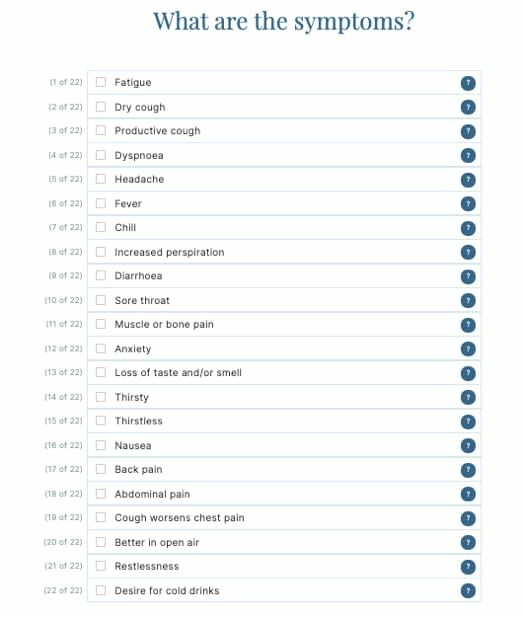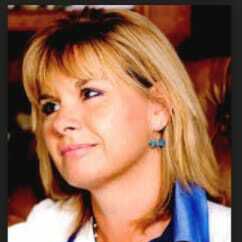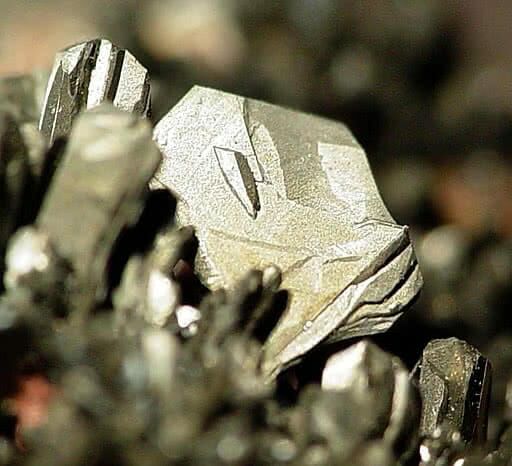This interview, with Peter Gold of The American Institute of Homeopathy, (AIH), is the first in a series, which discusses the methods and outcome of the data collection following homeopathic treatment of COVID-19, from March, 2020, to date. In this particular project, one hundred and sixty-five doctors and homeopaths from AIH and around the world are participating in essential data collection, which is collated to show the efficacy of homeopathy as a potential modality in the treatment of Covid-19.The purpose of the project was, he states: ‘to rapidly collect COVID-19 cases in real-time in a form that could then be anaylzed and shared with colleagues around the world. There will be papers on COVID and homeopathy published using the data. A new COVID-19 mini-repertory has already been created from the information we have generated. That has already been shared widely.’ It can be found here.
I had an interesting, informative chat with Peter, to find out more about The Covid data collection project. This article will not follow a standard question and answer type of interview, I prefer the narrative format in this case which I feel better describes and documents effectively the main points discussed, succinctly summarising what the project is, how it works and what they hope to achieve, now and in the future.
Peter Gold has worn or still wears many homeopathic hats, as he told me. He is currently Communications Director at The American Institute of Homeopathy, he also works with the Canadian Academy of Homeopathy, closely liaising with Dr André Saine. In the past, he was Communications Director for The National Center of Homeopathy and the Academy of Veterinary Homeopathy. He has created an extensive homeopathic research bibliography together with Dr Iris Bell, along with many other positions, of which he modestly admits to. Basically, he is a key figure in American homeopathy in particular and coordinates much of the homeopathic activity.
The Project.
The American Institute of homeopathy has set up a COVID-19 Data Collection Project, the goal of which is to collate important data about Covid cases, treated homeopathically. It started in March of 2020, in response to a rising tide of COVID cases around the world. The effort utilizes a digital data collection tool that was custom built and was one of the first launched globally. As mentioned above, one hundred sixty-five practitioners from AIH and around the world are participating in the project. The effort is part of a collaboration with other groups internationally and key figures in the homeopathic community, (Lex Rutten MD and Tiziana Giampietro MD (ECH), Robbert van Haselen Ph.D./Vithoulkas Compass, and Frederik Schroyens, MD, Clificol-Zeus Opus) to collect case data.
From talking to Peter, I could sense that the team has worked relentlessly and tirelessly since March, sensing the urgency of the situation. To date, hundreds of cases have been gathered and analyzed – with the data being shared weekly across the globe within both the homeopathic and allopathic communities. Lex Rutten, MD, designed the Covid App and has been strongly involved in the data analysis together with the team. From this custom-built data collection tool, a mini repertory app was built and is being used by doctors and homeopaths, so that patient data can be input as quickly as possible (about 5 minutes per patient apparently.)
Since it was set up, 165 homeopaths from around the world have been granted access to the data collection tool. Contributors hail from the U.S., Europe, Canada, South and Central America, and South Asia. As for the app, to date, 538 cases have been submitted of varying quality. It is described as follows:
‘This app has been developed using the experience of medical homeopaths worldwide who have responded to requests for help by COVID-19 patients. As is often the case in epidemics, a small number of remedies are perceived to be helpful by a large proportion of patients. This app is designed to facilitate choice between the five which have been found to be the most common, Arsenicum album, Bryonia alba, Gelsemium sempervirens, Phosphorus and Pulsatilla. Further medicines may be added as and when more data is available. Background information is given in a separate document of the Liga Medicorum Homeopathica Internationalis (LMHI).’
The unique symptoms of each patient are then entered, selected from a list presented. Research has measured the relationship between each symptom and the response to each remedy, specifically in COVID-19 patients. This information is used to calculate the best match to the current presenting symptoms.’
On answering as many questions that are applicable, together with modalities available on clicking each question, the next screen suggests the best fitting remedy.

As of October 2020 the results so far are as follows:
When one isolates lab-confirmed and suspected exposure COVID-19 cases in the data, there are 238 cases that can be analyzed reliably. Two-hundred twenty-four of those were given a remedy with positive results, 14 cases with still unknown results, and six with a negative result. In ~38% of those cases with a positive result, Bryonia (85) was the most helpful. The next three most prescribed/helpful remedies among the cases submitted with a positive result received Arsenicum album (22), Gelsemium (19), and Phosphorus (17).
When one looks at just the COIVD-19 lab-confirmed cases, there are 144 cases to review. One-hundred thirty-two of those were given a remedy with positive results, three with a negative result, and nine with the result unknown. In these cases, with a positive outcome after prescription, either Bryonia (54), Gelsemium (14), or Arsenicum album (10) were the most helpful. The next most prescribed/helpful remedy among the cases submitted with a positive prescription outcome received Phosphorus (8).”
There is no specific genus epidemics rising from this data at the moment. The remedies above are a cluster, which are all relevant, depending on the case.
Where do we go from here?
The results so far seem to suggest that this is an inspiring project, with encouraging results. It is fundamentally important to have records such as this, which gives structure to the findings, and an indisputable base of evidence, which should be of great use to the wider medical community. It is early days yet, and as stated, the project is ongoing, but clearly the homeopathic approach has been effective and points to key remedy choices, which is invaluable for us as homeopaths, also great advice to guide patients should they have access to remedies in emergency situations. From a personal point of view, I feel it would be valuable in the future to highlight and report some specific patient cases. Equally as valuable would be to eventually circulate this information in the mainstream media, backed up with the hard data collated here. I understand it will be reported in great depth in Homeopathy Journal (Thieme) imminently.
Are you interested in contributing to the project? Professional homeopaths are welcome to participate, please email peter_gold@goldorluk.com. He will provide access credentials for the data collection tool.
The discussion with Peter was fascinating and engaging. It is wonderful to see how proactive this particular community of doctors/homeopaths are being at this challenging time. I look forward to further updates and to informing you accordingly.
As we believe in giving various perspectives a voice, we may publish ideas we don't necessarily agree with, therefore the views of the authors do not necessarily reflect the views of Magic Pills, Ananda More, or Phosphorus Films.



